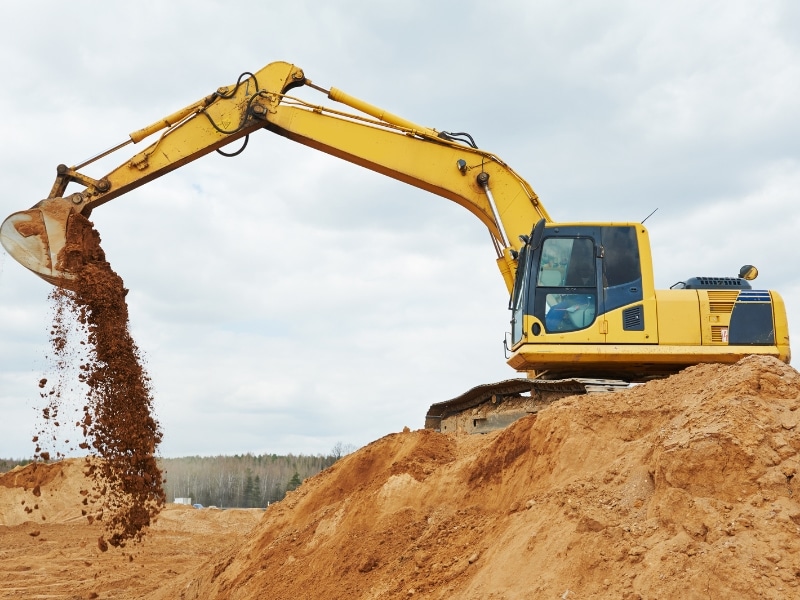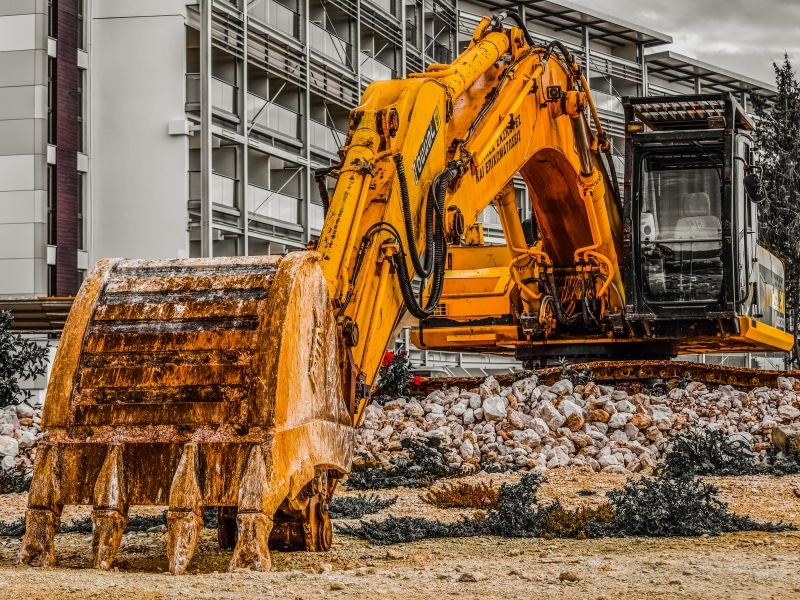Learning to drive an excavator properly is more than just a skill—it’s crucial to ensure safety, efficiency, and professionalism on any construction site. Whether you’re just starting to learn to drive an excavator or aiming to refine your technique, remember that these powerful machines require precise handling to avoid accidents, damage, and costly downtime. If you want to protect yourself, your colleagues, and your equipment, mastering how to operate an excavator safely and competently is essential. This article will explore why learning to drive an excavator correctly is important and what you need to know before getting behind the controls.
What is involved in learning to drive an excavator?
When you decide to learn to drive an excavator, you’re signing up for a practical and theory-based training that covers everything from machine controls to site safety. Here’s what typically makes up the training:
- Understanding the machine: Familiarisation with the excavator’s parts, controls, and functions.
- Safety procedures: Learning to conduct pre-operation checks and use personal protective equipment (PPE).
- Basic operation: How to start, stop, and manoeuvre the excavator correctly.
- Digging techniques: Proper methods for digging, loading, and moving materials.
- Site awareness: Navigating different terrains and recognising hazards on site.
- Emergency procedures: What to do in case of a malfunction or accident.
- Maintenance basics: Routine checks to keep the excavator in good working order.
Driving an excavator involves comprehensive training that equips you with knowledge about the machine, safety protocols, operational skills, and emergency responses to keep your work safe and efficient.
Can you operate an excavator without a licence?
You might think you can jump on a machine and learn as you go. However, operating an excavator without a ticket can lead to serious legal and safety consequences. In most work environments, especially commercial or high-risk sites, you need proof of competency to operate an excavator.
- Legal implications: Operating heavy machinery without a licence can lead to fines, penalties, or job loss.
- Insurance issues: Without proper certification, insurance claims may be denied after an accident.
- Increased accident risk: Lack of formal training can lead to improper handling, injuries or damage.
- Employers’ requirements: Most construction companies mandate an excavator ticket before allowing operation.
- Site compliance: Regulatory bodies require machinery operators to hold valid licences for workplace safety.
Operating an excavator without a licence is unsafe and illegal in many cases. Getting certified ensures you comply with legal and insurance requirements while protecting yourself and others.
When should you learn to drive an excavator?
Timing can make a big difference when deciding to learn to drive an excavator. Whether new to the industry or switching careers, sooner is better than later. Training before stepping onto a job site sets you up for success.
- Before starting work, obtain your ticket before being assigned to excavator tasks on site.
- Career change: Early training opens new job opportunities if moving into construction or earthmoving.
- Skill upgrade: For experienced operators, refresher courses improve safety and efficiency.
- After a long break: Retraining is vital if you haven’t operated machinery in a while.
- Meet industry standards. Ongoing regulations may require updated certification periodically.
Many learners aren’t sure where to begin, but a good first step is to explore how to learn to drive an excavator through proper training to understand both practical and legal requirements.
What skills do you need to operate an excavator?
Being an excavator operator isn’t just about moving dirt. You’ll need a mix of physical coordination, situational awareness, and strong communication. Proper training helps you develop these core capabilities:
- Hand-eye coordination: For precise control of the boom, arm, and bucket.
- Spatial awareness: To judge distances and navigate tight spaces.
- Mechanical understanding: Knowing how the machine works and how to troubleshoot.
- Attention to detail: Spotting hazards and monitoring site conditions.
- Communication: Working safely with other team members on site.
- Problem-solving: Managing unexpected issues quickly and safely.
- Physical fitness: Being able to stay alert and handle the job’s physical demands.
Operating an excavator successfully demands a blend of coordination, awareness, mechanical knowledge, and communication skills.
Who should get an excavator ticket?
Excavator tickets aren’t just for people with years of construction experience. They benefit a wide range of professionals and trades. Adding this skill can be a game-changer if you’re working in or around physical job sites.
| Job Role | Reasons to Get an Excavator Ticket |
| General labourers | Improve job prospects and site versatility |
| Landscapers | Perform your own digging and groundwork |
| Small business owners | Reduce costs by operating your own machinery |
| Civil construction workers | Required for most roles on infrastructure projects |
| Property developers | Oversee and understand excavation activities |
Anyone who operates or plans to operate an excavator on a worksite should get an excavator ticket to ensure safety, comply with legal requirements, and follow safe practices for operating an excavator on a construction site.
What mistakes do untrained operators often make?
In theory, learning on the job sounds good, but it often leads to expensive or dangerous mistakes. Proper training helps you avoid errors that could damage property, injure people, or cost you your job. Common mistakes made by untrained operators include:
- Ignoring safety checks: Skipping pre-start inspections and PPE use.
- Poor machine control: Jerky or incorrect movements leading to tipping or collisions.
- Misjudging terrain: Operating on unsafe or unstable ground without assessing risks.
- Lack of hazard awareness: Overlooking underground utilities or nearby workers.
- Improper load handling: Overloading or uneven digging that destabilises the machine.
- Inadequate communication: Failing to signal or coordinate with other workers.
- Skipping maintenance: Neglecting daily upkeep results in breakdowns.
Many mistakes made by untrained operators stem from their lack of knowledge about safety, control, and site conditions. Understanding the dangers involved in excavation work is essential to reducing these risks and preventing incidents.
Why is proper excavator training essential?
Proper training isn’t just a legal formality; it’s the foundation of safe, productive excavator operation. Here’s why it matters:
- Reduces accidents: Well-trained operators understand risks and how to mitigate them.
- Improves productivity: Skilled operators work efficiently, completing tasks faster.
- Protects equipment: Proper use reduces wear and costly repairs.
- Ensures legal compliance: Training meets WHS laws and licensing requirements.
- Boosts career prospects: Certification increases employability and confidence on-site.
A trained operator is safer, more productive, and employable—a win-win for you and your team.
Conclusion
Learning to drive an excavator properly isn’t just about moving dirt—it’s about building a solid foundation for your career. Whether aiming to enter the construction industry or boost your skills, proper training helps you operate safely, efficiently, and legally. If you’re ready to take the next step, you can get in touch with SafeZone Training to start your training journey.



